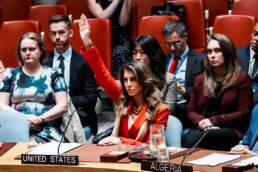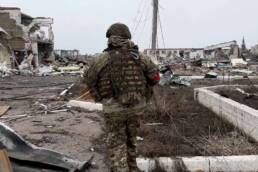المصادر:
[1] نُشرت هذه الدراسة في مجلة المستقبل العربي العدد 471 في أيار/مايو 2018.
(*) جـــويــدة حـمــزاوي: أستاذة مساعدة «أ»، قسم العلوم السياسية، جامعة سطيف – الجزائــر.
البريد الإلكتروني: dj.hamzaoui@yahoo.com
[2] Natalia Mirimanova, «Civil Society Building Peace in the European Neighbourhood: Toward a New Framework for joining Forces with the EU,» Policy Working Paper 10, Brighton, Microcon (2010), p. 1.
[3] Moritz Schneider, «Europeanization beyond the EU: The Dynamics of Europeanization in the Southern Mediterranean Partner States,» L’Europe en formation, no. 356 (été 2010), p. 130.
[4] «Wider Europe-Neighbourhood: A New Framework for Relations with Our Nieghbours,» COM, 2003,104 Final, 11 March 2003, <http://www.europa.eu.int/comm/external_relations/we/doc/com03_104_en.pdf>.
[5] يقول رومانو برودي في صدد توسيع الاتحاد الأوروبي: «ما قمنا به كان نجاحاً في الأول من أيار/مايو 2004 في دبلن، احتفلنا بهذا التوسع، شعرنا أنه نصر تاريخي لأوروبا. الجميع شعر بهذا. من بعد، عادت الأفكار القومية القديمة وبدأت مشاكل الحدود بين الدول في الظهور. هذا منح حريةً جديدة لدول شرق أوروبا. ثم في المرحلة الثانية، ظهرت الأحزاب الشعبوية».
[6] Fulvio Attina, «European Neighbourhood Policy and Building of Security around Europe,» in: Fulvio Attina and Rosa Rossi, European Neighbourhood Policy: Political, Economic and Social Issues, Catania: The Jean Monnet Centre «Euro-Med», 2004, p. 16.
[7] Lionel Urdy, «L’Europe et la méditerranée dix ans après Barcelone: Voisins dorénavant,» dans: L’Année du Maghreb 2004 (Paris: CNRS Editions, 2004), p. 60.
[8] Marco Overhaus, Hans W. Maull, and Sebastian Harnish, “The New Neighbourhood Policy of the European Union: Perspective from the European Commission, France, Germany, Poland, Ukraine and Moldova,» Foreign Policy in Dialogue, vol. 7, no. 19 (July 2006), p. 3.
[9] إستونيا، ليتونيا، جمهورية التشيك، سلوفاكيا، بولونيا، المجر، سلوفينيا، قبرص ومالطا.
[10] Commission des communautés Européenne, Commission des communauté Européenne, «Politique Européenne de voisinage: Document d’orientation,» Bruxelles, Commission des communauté Européenne (2004), p. 2.
[11] Overhaus, Maull, and Harnish, Ibid., pp. 3-4.
[12] المصدر نفسه، ص 3-4.
[13] Commission des communauté Européenne, Ibid., p. 3.
[14] Stefania Penebianco, «Volatile Regionalism in the Mediterranean Area,» L’Europe en formation, no. 356 (été 2010), p. 162.
[15] Urdy, «L’Europe et la méditerranée dix ans après Barcelone: Voisins dorénavant,» p. 64.
[16] Giuseppe Provenzano, «The External Policies of the EU towards the Southern Neighbourhood: Time for Restarting or Sliding into Irrelevance,» Working Paper Series, Rome/Italy, LUIS School of Government, 2016, p. 10.
انظر أيضاً: Andréas Herdina, «La Politique européenne de voisinage (PEV)-Un partenariat pour la reforme,» dans: Laurent Beurdeley, dir., L’Union européenne et ses espaces de proximité (Bruxelles: Edition Bruylant, 2007), p. 39.
[17] Michele Comelli, «The Approach of the European Neighbourhood Policy (ENP): Distinctive Features and Differences with the Euro-Mediterranean Partnership,» AFFARI Working Paper, Brussels, 17 November, 2005, p. 10.
[18] «سياسة الجوار الأوروبية،» <http://europa.eu.int/comm/world/pdf/com03-104-en.pdf>
[19] Jean-Robert Henry, «La Méditerranée occidentale en quête d’un «destin commun» dans: L’Année du Maghreb 2004 (Paris: CNRS éditions, 2004), p. 15.
[20] Urdy, «L’Europe et la méditerranée dix ans après Barcelone: Voisins dorénavant,» p. 64.
[21] Fabrisio Tassinari, «Security and Integration in the EU Neighbourhood: The Case for Regionalism,» CEPS Working Document, no. 226 (July 2005), p. 15.
[22] Fulvio Attina, «Partnership and Security: Some Theoritical and Empirical Reasons for Positive Development in the Euro-Mediterranean Area,» JM Working Paper, no. 27 (July 2000), p. 6.
[23] المصدر نفسه، ص 6.
[24] Manuela Moschella, «European Union’s Regional Approach Toward Its Neighbours: The European Neighbourhood Policy Vis-à-Vis Euro-Mediterranean Partnership,» in: Attina and Rossi, European Neighbourhood Policy: Political, Economic and Social Issues, p. 59.
[25] المصدر نفسه، ص 59.
[26] المصدر نفسه، ص 59.
[27] بشارة خضر، أوروبا من أجل المتوسط: من مؤتمر برشلونة إلى قمة باريس 1995-2008، ترجمة سليمان الرياشي (بيروت: مركز دراسات الوحدة العربية، 2010)، ص 206.
[28] Moschella, «European Union’s Regional Approach Toward Its Neighbours: The European Neighbourhood Policy Vis-à-Vis Euro-Mediterranean Partnership,» p. 61.
[29] المصدر نفسه، ص 61.
[30] Ekaterina Domorenok, «Regional Cooperation under The Neighbourhood Policy,» in: Attina and Rossi, European Neighbourhood Policy: Political, Economic and Social Issues, p. 89.
[31] Attina, «European Neighbourhood Policy and Building of Security around Europe,» p. 16.
[32] Vitaly Denysyuk, «Politique de Voisinage de L’Union Européenne: Qu’elles transformations sur le régime commercial régional en Europe,» Revue du Marché Commun de L’Union Européenne, no. 485 (février 2005), pp. 101-114.
[33] William Wallace, «Looking after the Neighbourhood: Responsibilities for the EU-25,» Policy Paper, Groupement d’étude et de recherché: Notre Europe, no. 4 (juillet 2003), p. 4.
[34] Moschella, «European Union’s Regional Approach Toward Its Neighbours: The European Neighbourhood Policy Vis-à-Vis Euro-Mediterranean Partnership,» p. 62.
[35] المصدر نفسه، ص 62.
[36] المصدر نفسه، ص 62.
[37] المصدر نفسه، ص 62.
[38] Denysyuk, «Politique de Voisinage de L’Union Européenne: Qu’elles transformations sur le régime commercial régional en Europe,» pp. 101-114.
[39] Chilosi Alberto, «The European Union and Its Neighbours: Everything but Institutions?,» MPRA Paper, no. 529 (novembre 2007), p. 3.
[40] Thomas Lacroix, «Contrôle et instrumentalisation de la société civile maghrébine dans la coopération euro-méditerranéenne: Le Cas du Maroc et de la Tunisie,» dans: L’Année du Maghreb 2004, p.103.
[41] زهير بوعمامة، «السياسة الأوروبية للجوار: دراسة في مكون ضبط الآثار السلبية للجوار على الأمن الأوروبي،» المفكر، العدد 5 (آذار/مارس 2010)، ص 248.
[42] Sven Biscop, «The European Security Strategy and The Neighborhood Policy: A New Starting Point For a Euro-Mediterranean Security Partnership?,» in: Attina and Rossi, European Neighbourhood Policy: Political, Economic and Social Issues, p. 27.
[43] الجزائر، مصر، إسرائيل، الأردن، المغرب، لبنان، ليبيا، السلطة الفلسطينية، سوريا وتونس.
[44] Comelli, «The Approach of the European Neighbourhood Policy (ENP): Distinctive Features and Differences with the Euro-Mediterranean Partnership,» p. 11.
[45] Aomar Baghzouz, «The Mediterranean policy of Algeria,» in: Isabel Schäfer and Jean – Robert Henry, eds., Mediterranean Policies from Above and Below (Munich, Nomos, 2009), p. 283.
[46] بوعمامة، «السياسة الأوروبية للجوار: دراسة في مكوِّن ضبط الآثار السلبية للجوار على الأمن الأوروبي،» ص 248.
[47] Michela Ceccorulli, «Migration as a Security Threat: International and External Dynamics in European Union,» GARNET Working Paper, no. 65/09 (April 2009), p. 02.
[48] Dario Battistella, Théories des relation internationales (Paris: Presses de Sciences Politiques, 2003), p. 453.
انظر أيضاً: محمد مطاوع، «الاتحاد الأوروبي وقضايا الهجرة: الإشكاليات الكبرى والاستراتيجيات والمستجدات،» المستقبل العربي، العدد 431 (كانون الثاني/يناير 2015)، ص 23.
[49] Didier Bigot, «L’immigration à la Croisée des Chemins Sécuritaire,» Revue Européenne des migrations internationales, vol. 14, no. 1 (1998), p. 33.
[50] امبارك إدريس طاهر الدغاري، «مخاطر الهجرة الغير شرعية من إفريقيا إلى أوروبا والسياسات المتخذة لمكافحتها،» المجلة الليبية العالمية، العدد 8 (تموز/يوليو 2016)، ص 6.
[51] المصدر نفسه، ص 6.
[52] مصطلح الدفع نحو الخارج هنا يعكس حقيقتين مترابطتين، هما: الدفع بسياسة معينة إلى دول أخرى، وكذلك الدفع بسياسة داخلية نحو السياسة الخارجية للاتحاد الأوروبي، بهدف تقليص تأثيرات البيئة الخارجية.
[53] Philippe C. Schmitter, «Neo-Neo Functionalism: Déjà Vu, all over again?,» in: Sarah Wolff, «La Dimension Méditerranéenne de la Politique Justice et Affaires Intérieures,» Cultures et conflits, no. 66 (été 2007), p. 1.
[54] Ruben Zaiotti, «La Propagation de la Sécurité: L›Europe et la Schengenisation de la Politique de Voisinage,» Cultures et conflits, no. 66 (été 2007), p. 65.
[55] Jérôme Valluly, «Aux marches de l’Europe: Des pays-camps,» in: Ali Bensaâd, dir., Le Maghreb à l’épreuve des migrations subsaharienne (Paris: Edition Karthala, 2009), p. 326.
[56] اقترح هذه المراجعة رئيس المفوضية الأوروبية جان كلود يونكر بناءً على طلب الدول الأعضاء في الاتحاد (أكثر من 250 مساهمة من الدول الأعضاء). لكنّ التطورات العميقة التي عرفتها المنطقة بعد أحداث 2011 فرضت القيام بمراجعة أخرى في 2015، في إثر الاستشارة العامّة التي نظّمت بمشاركة البلدان الشريكة والمنظّمات الدوليّة والشركاء الاجتماعيّين والمجتمع المدني والمؤسّسات الجامعيّة، إذ تمّ يوم 18 تشرين الثاني/نوفمبر 2015 نشر بيان مشترك يرسم الخطوط العريضة لمراجعة سياسة الجوار الأوروبيّة. لمعلومات أكثر انظر: <http://eeas.europa.eu/archives/docs/enp/documents/2015/151118_joint-communication_review-of-the-enp_ar.pdf>.
[57] Iole Fontana, «The Security Dimension of the European Neighbourhood Policy: the Case of Security Sector Reform in Tunisia,» EUMedEA Online Working Paper Series, no. 2, Catania/Italy, Jean Monnet Centre, 2016, p.7.
[58] المصدر نفسه، ص 7.
[59] المصدر نفسه، ص 8.
[60] المصدر نفسه، ص 8.
[61] المصدر نفسه، ص 9.
[62] وذلك من خلال «آلية الجوار الأوروبي» 2014-2020 التي رُصدت لها ميزانية تقدّر بـ: 18.2 مليار يورو- وقد حلّت محل «آلية الشراكة والجوار الأوروبي» (ENPI) 2007-2013، هذه الأخيرة التي خلفت بدورها برنامج ميدا وغيرها من البرامج المختلفة (MEDA& TACIS)، كجزء من اصلاح اتفاقيات المساعدات التي كانت تمنحها المفوضية الأوروبية.
[63] Timo Behrm, «After the Revolution: The EU and the Arab Transition,» Policy Paper, no. 54, Helsinki, Institute of International Affairs (FIIA), Notre Europe (April 2012), p. 18.
[64] Stefan Lehne, «Time to Reset the European Neighborhood Policy,» Carnegie Europe, Brussels, Belgium, 2014, p. 10.
بدعمكم نستمر
إدعم مركز دراسات الوحدة العربية
ينتظر المركز من أصدقائه وقرائه ومحبِّيه في هذه المرحلة الوقوف إلى جانبه من خلال طلب منشوراته وتسديد ثمنها بالعملة الصعبة نقداً، أو حتى تقديم بعض التبرعات النقدية لتعزيز قدرته على الصمود والاستمرار في مسيرته العلمية والبحثية المستقلة والموضوعية والملتزمة بقضايا الأرض والإنسان في مختلف أرجاء الوطن العربي.



